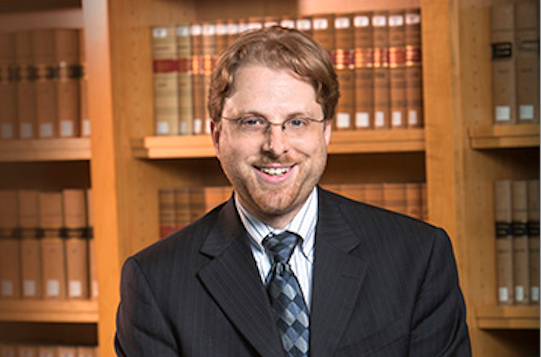
This week, Apple opposed a judge’s order to help the Federal Bureau of Investigation break into the iPhone of one of the San Bernardino, California, shooters.
Apple CEO Tim Cook, in a public letter, warned that complying with the order would essentially result in building “a backdoor to the iPhone,” something he said the company considers too dangerous to create. Cook has said it is one of the order’s “chilling” implications, and that it could lead to government power to reach into anyone’s device to capture their data, even accessing the phone’s microphone or camera.
But Justin “Gus” Hurwitz, an assistant professor with the University of Nebraska Space, Cyber and Telecommunications Law program, said he thinks the government is right in this case. A former trial attorney with the Telecom and Media Enforcement section of the U.S. Justice Department’s Antitrust Division, his research focuses on the interface between law and technology and the role of regulation in high-tech industries, he offered the following observations:
1. “There are really important issues at play in this case, with strong arguments on both sides.”
One way to think about this case is that the the government is dictating how private companies design their products, and requiring them to make their products less secure. The other way is that the government is telling Apple that it cannot deliberately design its products to interfere with lawful law enforcement activities. There are good arguments on each side, and possibly not much middle ground between them.
2. “It is not about widespread government surveillance.”
Apple’s security features responded to former National Security Agency contractor Edward Snowden’s revelations about government surveillance programs, Hurwitz said. However, the San Bernardino case doesn’t involve surveillance. The FBI wants to search a single device owned by a single person, now dead, who was clearly implicated in a crime.
3. “The courts and Congress are unlikely to allow companies to knowingly and intentionally develop products that will lead to routine destruction of evidence.”
Federal law requires telecommunications equipment to be designed to support lawful law enforcement activities, Hurwitz said. Congress has been discussing whether those requirements also apply to iPhones and similar devices. This case could turn a hypothetical discussion into real legislation, he says.
4. “This order won’t make your iPhone more vulnerable to hackers and it won’t make it easier for the government to spy on you.”
Hurwitz said the magistrate’s order is not a grant of unbridled judicial authority. Even if the self-destruct feature were outlawed, hackers still would need to decrypt phone data before they could use it, putting access beyond the skills and resources of ordinary thieves. Even the government would have to decrypt individual phones before it could undertake widespread surveillances efforts.
5. “The key to understanding this case is that Apple deliberately designed its system to make even lawful access to data difficult, if not impossible.”
Generally, iPhone users can delete their data if they want – but not if that data is subject to a court order or evidence of a crime. “In that case, it’s a crime to destroy data,” Hurwitz said.







